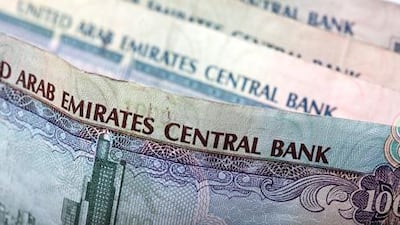DUBAI // The country will set up its own mint to keep pace with the UAE's growth, the Central Bank of the UAE and the Emirates Investment Authority have announced.
The dirham is currently printed in countries such as the UK and France, but the new mint will print all the currency notes the UAE needs, according to state news agency Wam.
The Emirates Investment Authority (EIA) will undertake construction of the mint, which will be fitted with advanced equipment ensuring world class operation, the bank said yesterday.
"The establishment of the mint is mainly aimed at meeting the Central Bank's entire needs of printed currency notes," the bank said.
"A secondary objective would be to market whatever surplus capacity in international markets ... The Central Bank shall provide necessary support to the [investment] authority, including experiences and resources to enable the mint to achieve its objectives."
An administrative committee with representatives of both Central Bank and EIA will be formed to coordinate standards, artwork, specifications and security features of the currency notes. The federal authorities will also be involved in monitoring and assessing the quality of the product.
The move was welcomed by industry heads.
"It's a positive step and a forward-thinking move," said Sudhir Shetty, the chief operating officer of the UAE Exchange.
"Having a mint in the country is important because it will give more control, in addition there will be intrinsic advantages in terms of costing and logistics. In a growing economy it's important to become self-dependent in this area."
Wam had reported a Central Bank announcement in 2009 to establish a mint to print dirhams and other currencies that would be located in Abu Dhabi. At the time, the Central Bank said the plant was required due to increased demands by banks for currency notes and the need to improve the quality of currency notes in circulation.
newsdesk@thenational.ae


